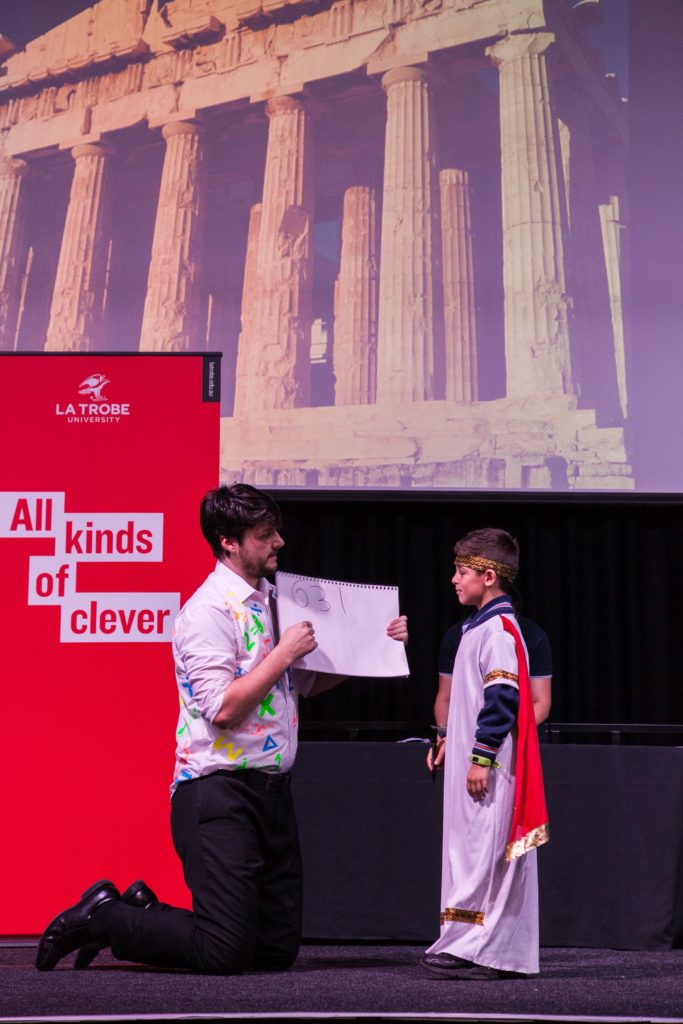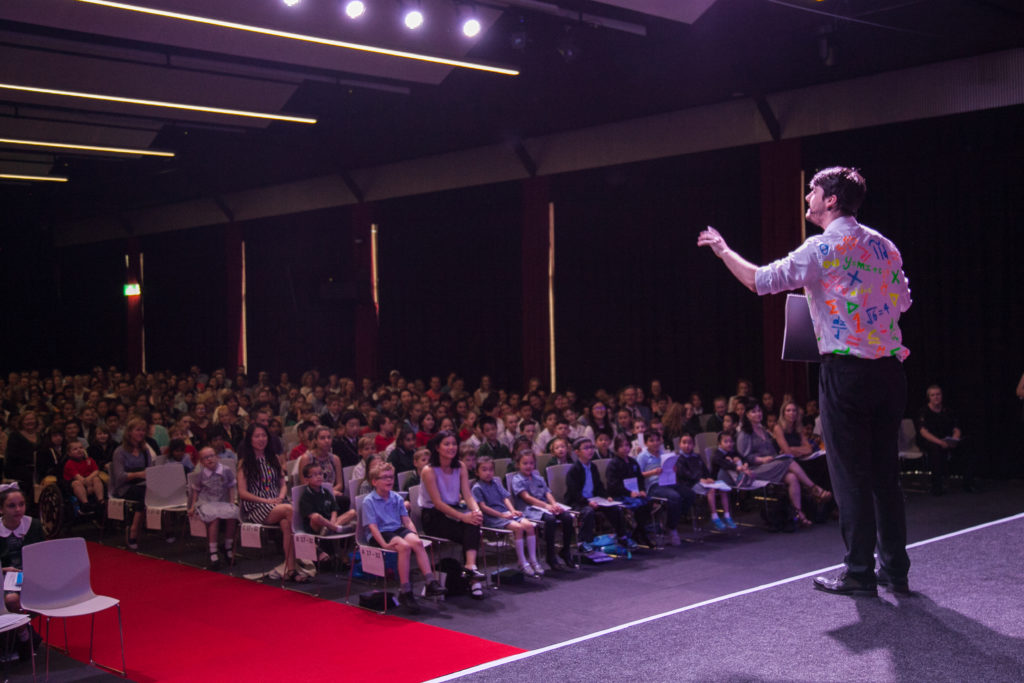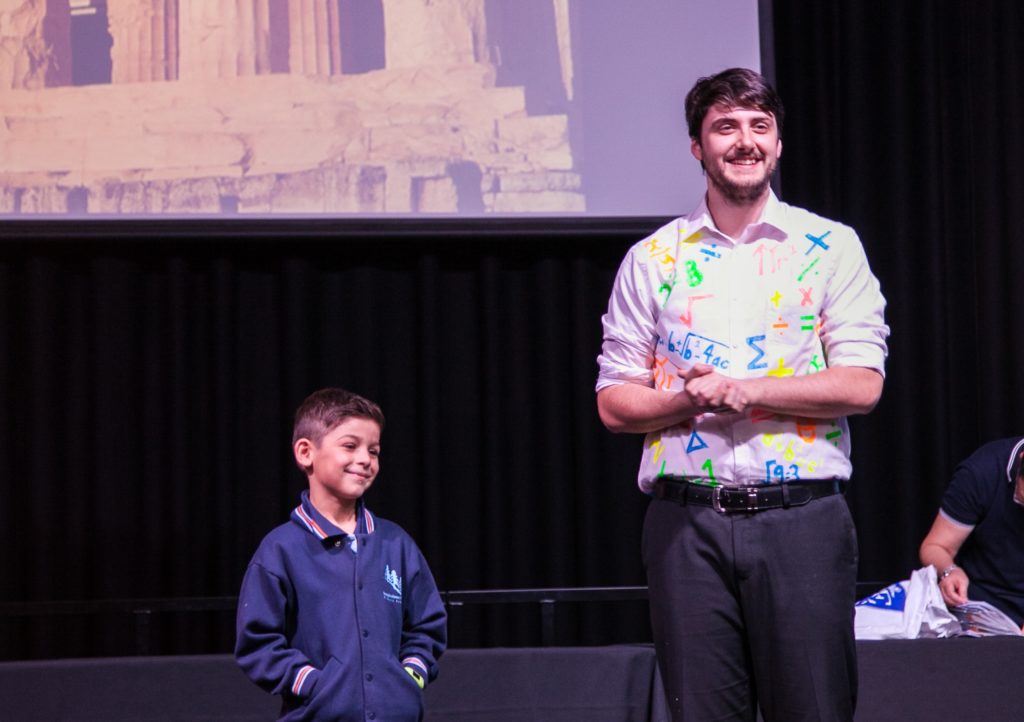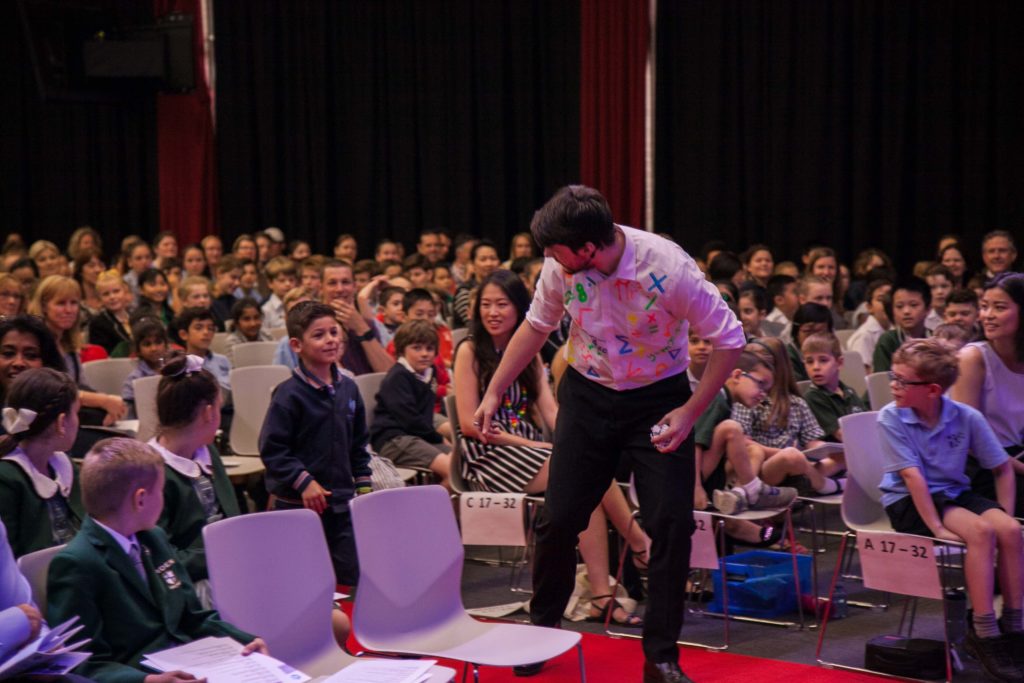Technology and Devices in Schools with Professor Mark Williams
The appropriate use of technology and devices is one of the biggest issues facing students, parents and educators today, and we are delighted to welcome to our team, Professor Mark Williams, one of Australia’s leading experts on the use of technology in schools. Mark is also highly renown for his work on the neuroscience of learning and its impact on student performance.
Mark is available to deliver his highly acclaimed range of student, teacher and parent presentations in partnership with Felstead Education.
Why do these programs?
Mark’s engaging and thought provoking programs cover six major areas of concern amongst students and their parents:
-
Ensuring strong and stable mental health
-
Socialisation in the digital age
-
Maintaining attention and focus
-
Maximising learning patterns and outcomes
-
Memory formation
-
Dealing with sleep problems
So if you are looking for ways to:
-
Ensure your students are aware of the key issues facing them in their use of technology
-
Keep your parent body up to date on the latest research surrounding the use of technology in schools
-
Inform your staff on the latest developments in the use of technology in schools and the neuroscience of learning
-
Ensure your school is able to implement best practice procedures and remain at the cutting edge of changes in education
Then one of Mark’s seminars or presentations, detailed below, may be just what you are looking for:
Keynote sessions for students or parents:
Are Smartphones making us Dumb?
Looking for ways to help your students cope better with smartphone dependence?
This program can help students address the many problems that smartphones are creating. Learning outcomes, resilience, curiosity, tolerance and emotional intelligence are all declining whilst stress, anxiety, depression and suicide are rising.
Students will learn about the evolution of the modern smartphone and the applications that influence so much of our lives. They will also learn how our brains learn and adapt, and why modern technology can be addictive and potentially harmful. They will hear about why it is important to disconnect from their devices to improve their wellbeing. Students will learn simple strategies to get back the time and motivation to connect, socialise, innovate, contribute and live in the real world.
In an informative and challenging presentation Mark covers:
-
The rise of the smart phone
-
The neuroscience of learning and memory and why smartphones are bad
-
The neuroscience of addiction, why smartphones are addictive and how to avoid it
-
The neuroscience of empathy and why smartphones are having an impact
-
The relationship between screen use, Depression and Suicide
-
Ways to minimise the potential effects
-
The session ends with a series of helpful tips and strategies that can be easily implemented to get smartphone use under control for both adults and teenagers.
This talk is a keynote presentation that can be run in a great variety of environments.
It has been adapted for either school students (50 min) or Adults (90 min).
Delivery fee is $1,500+GST (50 min) or $2,000+GST (90min)
Professional development programs for teachers
Rethinking Technology in Schools
Better ways to use technology in schools to improve learning outcomes, health and wellbeing.
This program addresses the many problems that modern technologies are creating in the classroom. Learning outcomes, resilience, curiosity, tolerance and emotional intelligence are all declining whilst stress, anxiety, depression and suicide are rising. Money and technology alone are not the answer to innovative practices in our schools. We need a significant shift in our understanding.
Teachers will learn how our brains learn and adapt and why modern technology is affecting students’ learning and wellbeing. We will discuss the current assumptions about technology in schools and how independent research has shown that many of these ideas are actually wrong.
With the COVID-19 pandemic, we are needing to use technology even more than ever before. As such, we need to be even more aware of the potential negative effects on our health and wellbeing.
Even before COVID-19, the past ten years has seen a dramatic increase in the use of technology in schools. The common reason given: it transforms the classroom and enhances learning. However, the research doesn’t support this notion. Modern technology such as smart phones, smart boards, tablets and laptops are affecting the way we think and how our brains develop. They are making us more stressed, anxious, depressed, and more likely to suffer from addiction.
Australia is currently leading the way when it comes to technology in schools while outcomes in literacy, maths and science are falling. On the other hand, Silicon Valley executives are sending their kids to schools with limited or no technology. It is time for us to rethink our use of technology in schools.
In an informative and challenging presentation Mark covers
-
Current beliefs about technology in schools
-
What the research shows us is actually happening
-
Neuroscience of learning and why devices are sub-optimal
-
Neuroscience of addiction and why device overuse is dangerous
-
New positive ways forward with technology in schools.
All participants get access to an online discussion and advice group for 12 months. They have access to courses, webinars, videos and regular live chat groups to continue their learning. Mark will respond to queries and post new ideas and resources on a regular basis.
Investment.
The delivery fee for this sessions is $3,000+GST
Combine the programs for a unique whole of school approach
Deliver the student, parent and teacher programs to keep your entire school community at the cutting edge of technology use in schools.
You can run a course for students and then teachers during the day and then for parents in the evening, providing a great whole of school approach that keeps everyone on the same page.
Investment.
The delivery fee for the whole of school program is $5,000+GST
New PD course for teachers on the Neuroscience of Learning
Neuroscience of Learning (4 Hrs)
Understanding how our brains learn is essential for all teachers.
In the past 20 years there has been a dramatic increase in our understanding of the human brain, how it develops and learns and how best to teach students. Many of the older ideas and strategies around learning and memory have been shown to be incorrect and the recent findings paint a very different picture of the human brain and its capacity to learn. Teachers have the opportunity to learn and adapt their teaching practices to incorporate many of these findings into their own teaching strategies. This course will cover many of the recent findings and discuss the new concepts and ideas around the neuroscience of learning.
In this course participants will first learn about the recent findings in the neuroscience of learning including:
-
The importance of understanding neuroplasticity and how the brain works
-
Memory formation
-
Hebbian learning and how they can be facilitated in the classroom
-
Attention and its vital role in learning and memory
-
The role of emotions in memory formation and facilitation
-
The good and bad aspects of stress and its impact on learning and the brain
-
The brain basis of addiction and how it can be used to instil a lifelong passion for learning
The focus will be on how teachers can implement strategies in the classroom to improve learning, memory and most importantly deep understanding
All participants get access to an online discussion and advice group for 12 months. They have access to courses, webinars, videos and regular live chat groups to continue their learning. Mark will respond to queries and post new ideas and resources on a regular basis.
Investment.
The delivery fee for this session is $3,500+GST
The Rethinking Technology in Schools course for teachers is NSW Education Standards Authority (NESA) approved and will contribute 3 hours of NESA Registered PD addressing 4.5.4 from the Australian Professional Standards for Teachers towards maintaining Proficient, Highly Accomplished or Lead Teacher Accreditation in NSW.
About Mark Williams
Mark is a Professor of Cognitive Neuroscience at Macquarie University. He has extensive experience in research and teaching and has authored 80+ publications. Concerned about the negative effects of over-use of technology on our human interactions, he is passionate about helping people to reconnect with what matters in the real world. Mark is currently making waves with his ‘Why Smartphones are Making us Dumb’ keynote and his challenging thinking on the over-use of technology in schools.
In addition to his teaching and research work at Macquarie University in Sydney, Australia, Mark now runs programmes for schools, parents, businesses and individuals to address the many problems that technologies (like smartphones) are creating.
Learning outcomes, resilience, curiosity, tolerance and emotional intelligence are all declining whilst stress, anxiety, depression and suicide are rising. Money and technology alone are not the answer to innovative practices in our schools, workplaces and society. We need a significant shift in our understanding.
Through his talks and strategies, Mark explains how our brains learn and adapt and why modern technology is addictive and potentially harmful. Mark helps people disconnect from their devices to improve their wellbeing, giving them back the time to connect, socialise, innovate, contribute and live in the real world.





